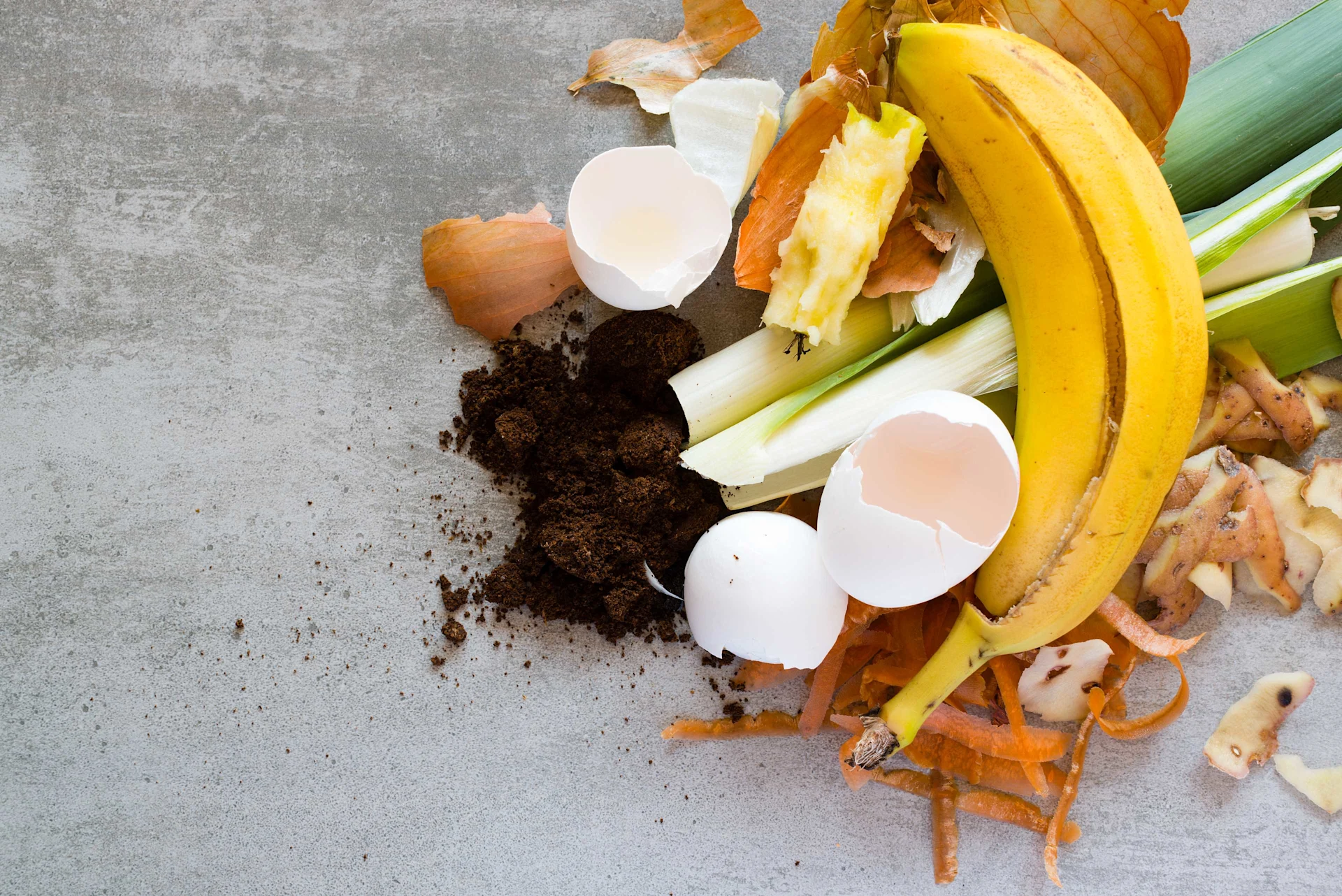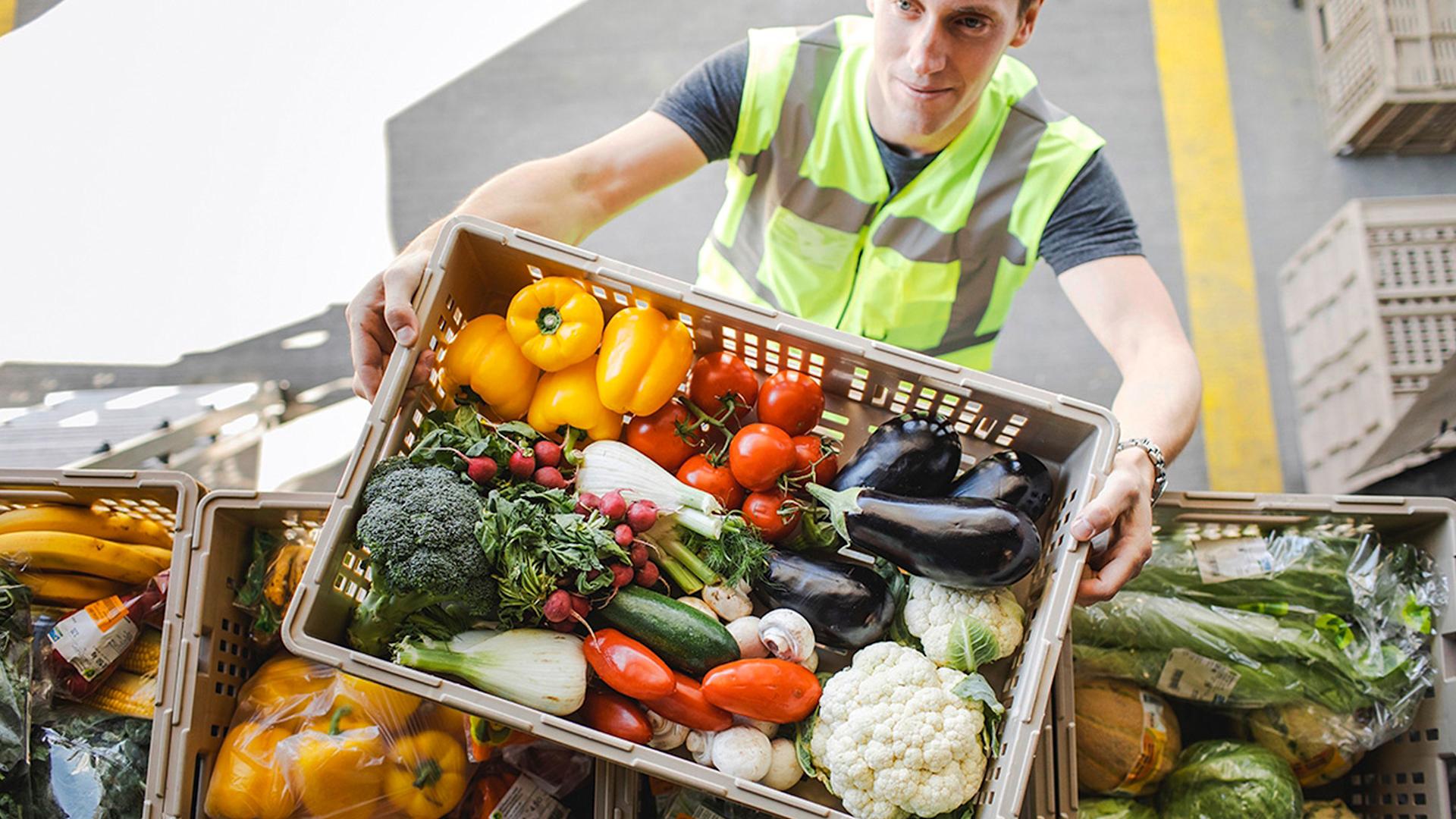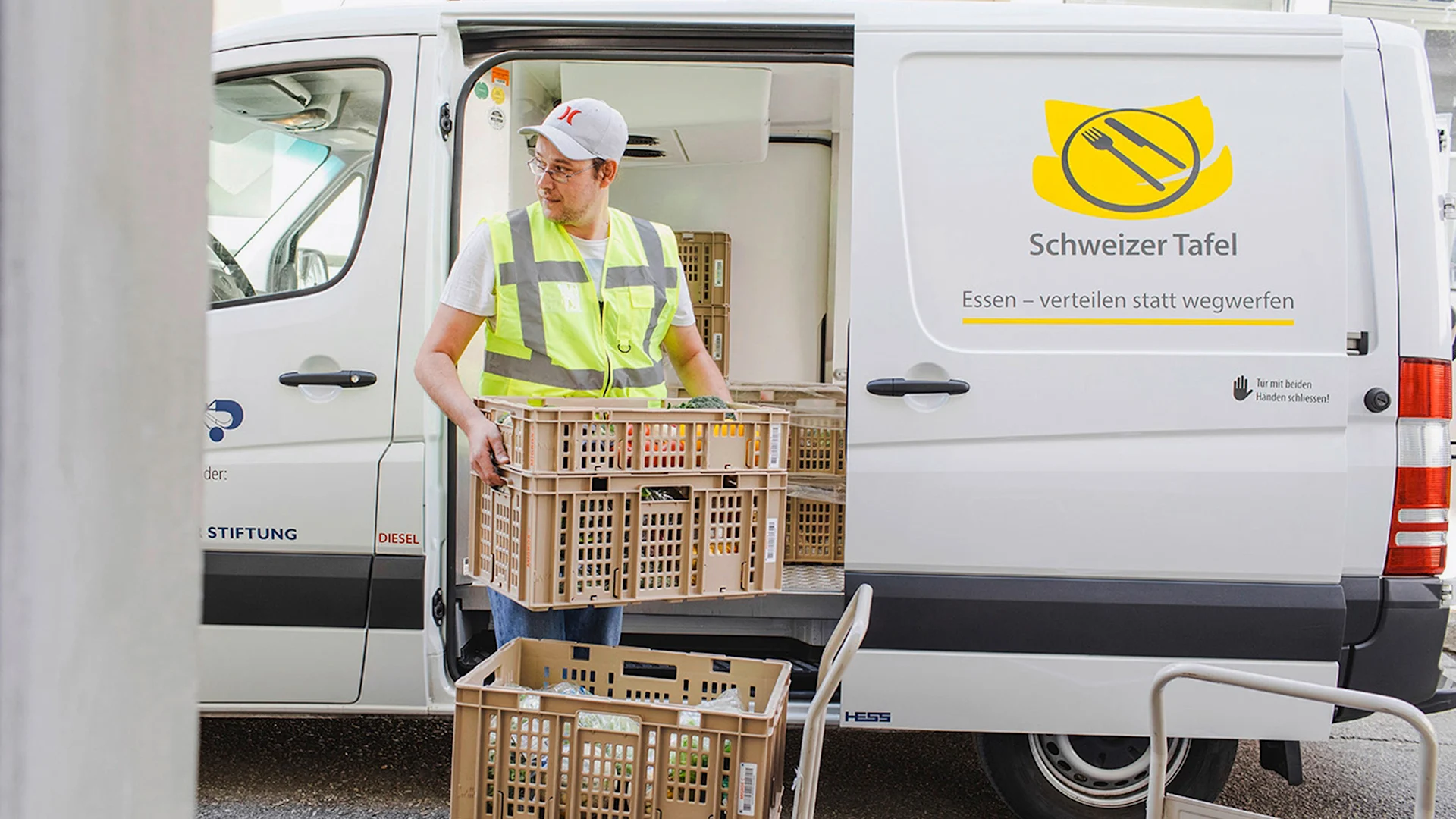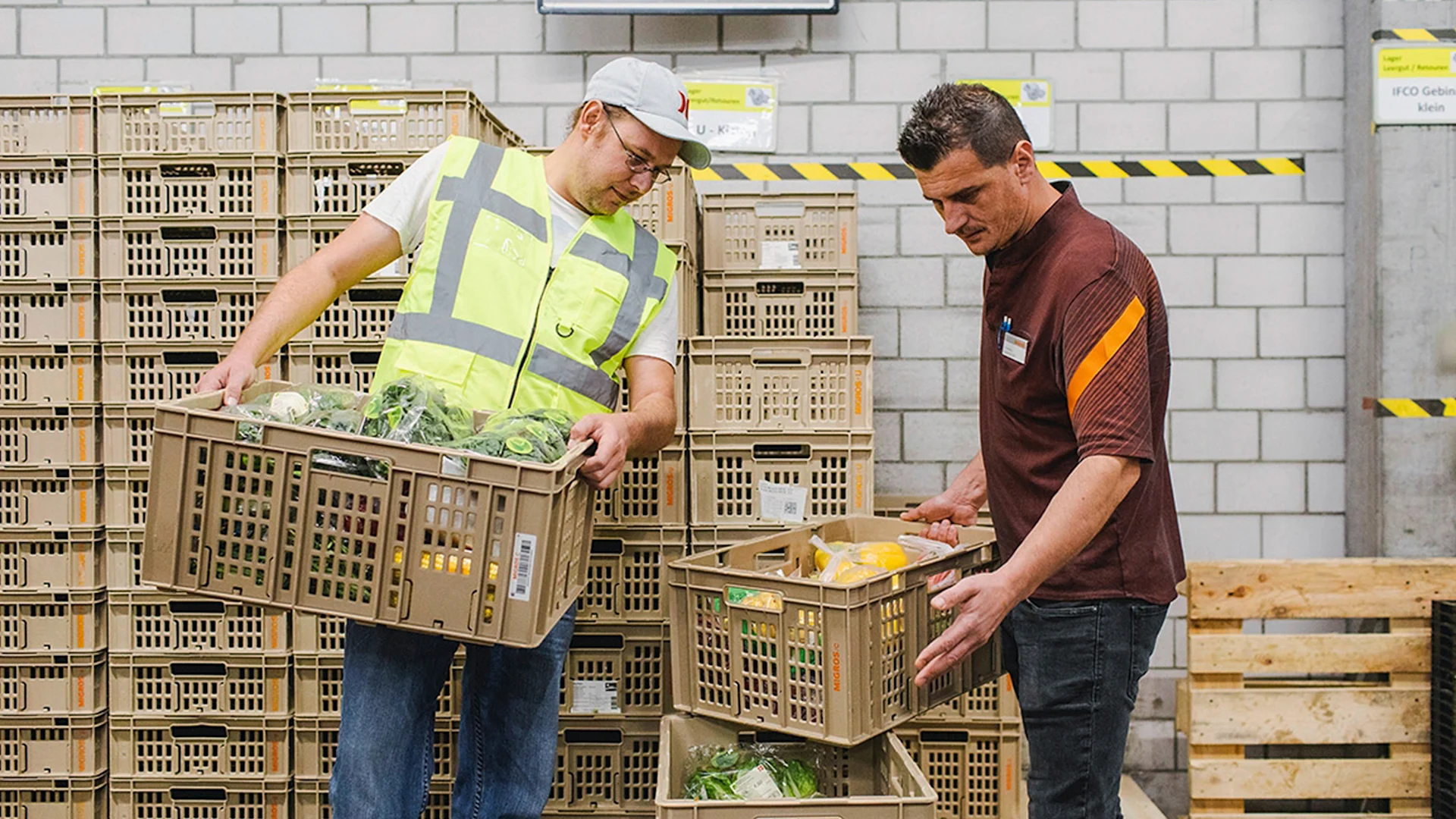
Food waste
What do you know about food waste?
Take part in the food waste quiz and find out how much you already know.
navigation

Schweizer Tafel
Organisations like "Schweizer Tafel" help people who live in poverty. They are also supported by Migros, for example, with food donations.
Burim Ibrahimi knows how to tackle food waste. This morning, at the Brügg Migros Centre just outside Biel (BE), he cut open pepperoni packaging and sorted out damaged vegetables, after which the deputy team leader in charge of fruit and vegetables put together the good pieces. Now they are ready for transport, along with maize cobs, spinach, melons and iceberg lettuce. The goods are collected by two Swiss Table drivers. The aid organisation’s logo is emblazoned on their small refrigerated truck: a stylised place setting and below it the slogan “Donate food – don’t throw it away”.
A lot of food is thrown away in Switzerland, but there are also many people who are in urgent need of it. Every year, almost three million metric tons of food are wasted while, at the same time, about 8% of the population lives below the poverty line. An environment of both wastefulness and destitution. That is why Migros works closely with charitable organisations that want to build a bridge between abundance and scarcity: Tischlein deck dich (The Wishing Table), Schweizer Tafel (Swiss Table), Tables du Rhône, Partage and Caritas. Eight years ago, Swiss Table and The Wishing Table joined forces to form the umbrella organisation Food Bridge. Since then, Migros has supported the facility not only with food donations, but also financially. Its clear goal is to prevent food waste in Switzerland as much as possible.

The Schweizer Tafel Foundation also seeks to alleviate poverty by distributing food. The organisation collects food from 450 wholesalers and distributes around 16 metric tons of food every day. The surplus food goes to social institutions such as homeless shelters, street kitchens or emergency shelters. The aid organisation depends on sponsors like Migros and a lot of volunteers. The volunteers include many senior citizens, and there are also many persons carrying out civilian service.
For example Lukas Pfeuti, who now drives the refrigerated truck from the Brügg Centre to the city centre. He decided on a seven-week assignment at the Swiss food bank because of the “meaningful work”, says the young man on his way to the Migros supermarket in Biel Neumarkt. After the crates of fruit and vegetables have been loaded, he continues to the buyers of the unsaleable but perfectly good products.

The major distributors are also called upon in the war on food waste – which is why Migros is also clamping down on food waste and distributing food whose sell-by dates have expired, but which can be eaten or cooked without hesitation. Through many other measures, Migros is keeping its overall waste rate at 1.4%. Most food waste in supermarkets comes from bakery and convenience products. This is followed by other fresh products such as fruit and vegetables as well as meat, poultry and fish.
Foreign nationals without identification documents and asylum seekers have the smallest budgets, but many working poor also depend on us
In the meantime, the Swiss Table van has arrived at Dufourstrasse in Biel, at the Salvation Army’s Passantenhilfe (“help to passers-by”), probably the city’s largest recipient of donated food. In a back room of this drop-in centre for people in need, the goods from the two Migros branch stores are sorted and packed in portions into shopping bags – a measure that became necessary because of the coronavirus.
As a result of the pandemic, more and more people in need are also stocking up at the Salvation Army. Even before the crisis, around 200 households received free food. This requires a ration card, which is only granted to those who can prove that they live at the minimum subsistence level. “Foreign nationals without identification documents and asylum seekers have the smallest budgets, but many working poor also depend on us”, says Susanne Helbling, head of the assistance and advice centre.
With simple tips, you too can reduce food waste. Join now and let’s save food together.